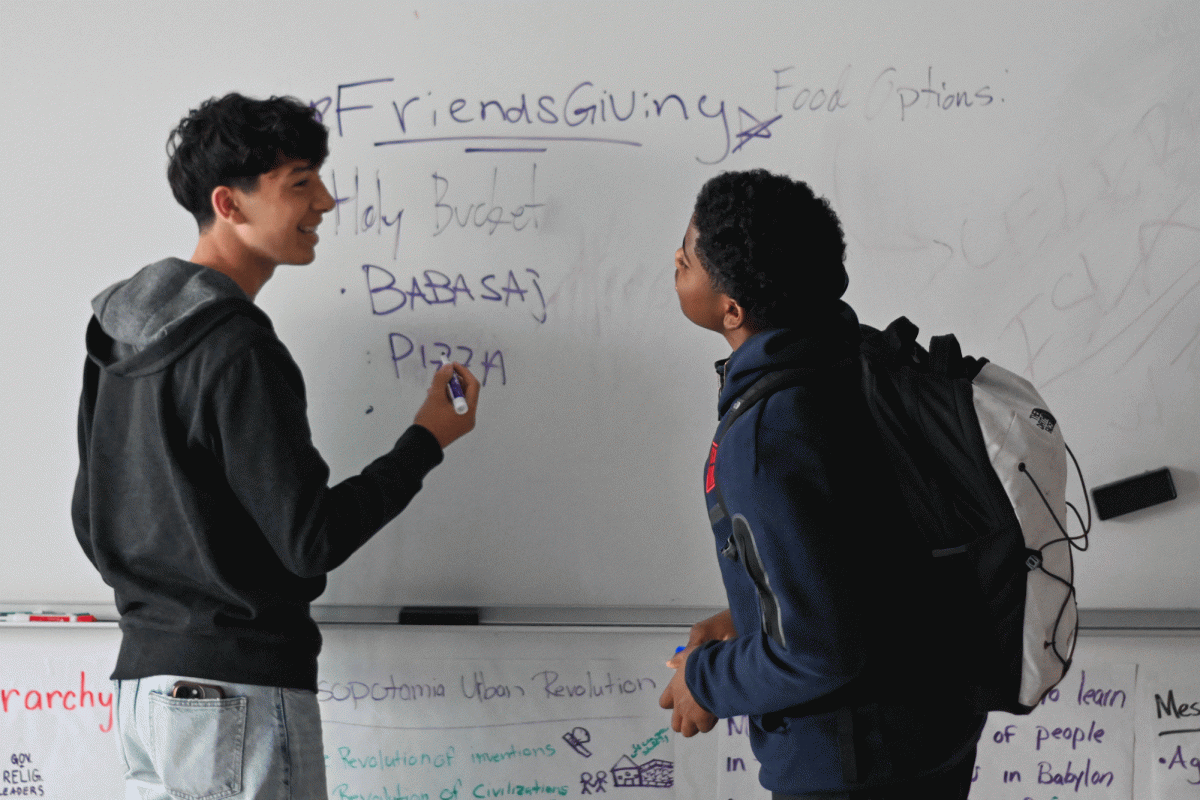Here are six financial literacy tips for teens
Although investing in the stock activity to be involved in, according to Julian Ingersoll.
April 23, 2021
Investing, card debt, checking accounts — these terms are what “adults” talk about. The topic is a complete eye roll and not on the radar for some high school students. As teens grow into the idea of being more self-sufficient and financially independent, these ideas circulate in the background being postponed until the time comes where there is no escaping it. The trick to making the topic seem less intimidating is to make a short list of all the basics one should know to become financially literate.
Financial literacy is the ability to understand and use different financial skills such as investing, budgeting and managing one’s own funds.
Financial literacy is not something that is explicitly taught at U-High, but many clubs and groups take great interest in the idea. April is financial literacy month, so here are six things financial novices should be aware of.
Research. Finances are different for everyone, due to one’s financial stability, the amount of loans someone has and other factors. But in order to step away from the uncertainty, doing a little research and trying to understand how financial literacy works and why it’s important are crucial in making a genuine change in understanding. Assessing your understanding of finance is crucial before diving into investing and setting up accounts for yourself. Senior Zach Sharp, head analyst for the U-High the Finance Club, implores anyone getting into finance to do their research before starting any aspect of financial planning and to join the Finance Club for personal help and guidance. This is so you don’t get conned, confused or caught in a situation that you have to dig yourself out of.
Budget. Sure, people “know” what it is and what it means, but have they taken the time to see how it might impact their future finances? Budgeting, in short, is planning your finances for the future. This ensures that people know where their money is going and what they spend it on.
“It’s just about information and awareness,” economics teacher Charles Disantis said. “You know what you have coming in, and you know what you have going out, and you keep track of it in a systematic way. If you don’t do that, it’s really hard to have sturdy finances.” Ways to practice this are to ask people at home how budgeting in the household works and their personal strategies for staying on top of their budgeting.
Invest. Investing and the stock market are a little more complicated than what meets the eye. Investing is an activity anyone can get involved in, but don’t expect to be the Wolf of Wall Street in the first few weeks of investing.
Before diving in head first, study up on the basics. What is a stock? According to Investopedia, A stock is a portion of a company that someone can buy, meaning ownership of a fraction of that specific corporation. This also means that you are entitled to the assets and profits of that company. But depending on the market, the prices fluctuate, and you can end up gaining money or losing money.
Some apps like Robinhood and Etrade can make investing seem very simple, but the problem arises when the apps make it easy to confuse investing with gambling.
“Even though these make it easier to invest, it also can make it feel like gambling, and there are major problems with that,” Zach said, “so you need to go into it with some sort of basis.”
Countless YouTube videos and books have helped Zach through his investment journey, and he hopes others will take his advice to do the same.
Credit card interest and debt. People aren’t financially born into the world until they make their mark with their own credit card. As seniors and juniors become old enough to start getting credit cards for themselves, many responsibilities come along with what most people see as a plastic, or metal card. So what is this new form of spending money?
A credit card is not a right of passage to make it Christmas every day, but it is two major things at one time. It can work as a debit card, but it is also a loan. As people pay with their credit card, they must pay back a certain amount at the end of the month — the sooner the better. The longer the holder of the card waits to pay the company the more the interest rates will increase, making it harder to pay off.
This is not a rite of passage to buy your mother a new car or to buy a new condo, but it is also a new way of proving that you are financially responsible and conscious of that responsibility.
Credit history and credit scores. Now that credit cards have been defined not as an endless amount of money, what is a credit score and what is the importance of credit history? Credit history is a record of someone’s repayment of debt, and a credit score is the grade that you are given that reflects whether you are financially responsible.
Once someone has their credit card, they are monitored to see if they keep up with their payments. If so, a good financial history is recorded and they are given a good credit score (about 650- 850). If payments are not met, then it will be harder to do a multitude of things such as get a job or rent an apartment. These are public records that reflect you and your credit habits.
That being said, it is important to stay financially present and use your credit card so your history shows growth and promise. This does not mean to go on shopping sprees at the Water Tower Place every afternoon, but it does mean that when you receive your card you should remain financially relevant.
Resources. Every adult you see has in some way, shape or form has needed to monitor these aspects of financial literacy. Do not be afraid to ask an adult for a brief overview of what you think could be helpful, because they know more than you know on such topics.
To start small with investing, look up YouTube videos and read books such as “The Intelligent Investor” by Benjamin Graham, which comes highly recommended by the Finance Club. Investing is a great secondary source of income, and becoming familiar with the concept is a very helpful tool in the financial literacy toolbox.
When it comes to credit cards and debt, reading the fine print before signing. Keeping an eye out for your budget never hurt anyone.
As the years go on these topics will just be another part of life, when will you get involved?












